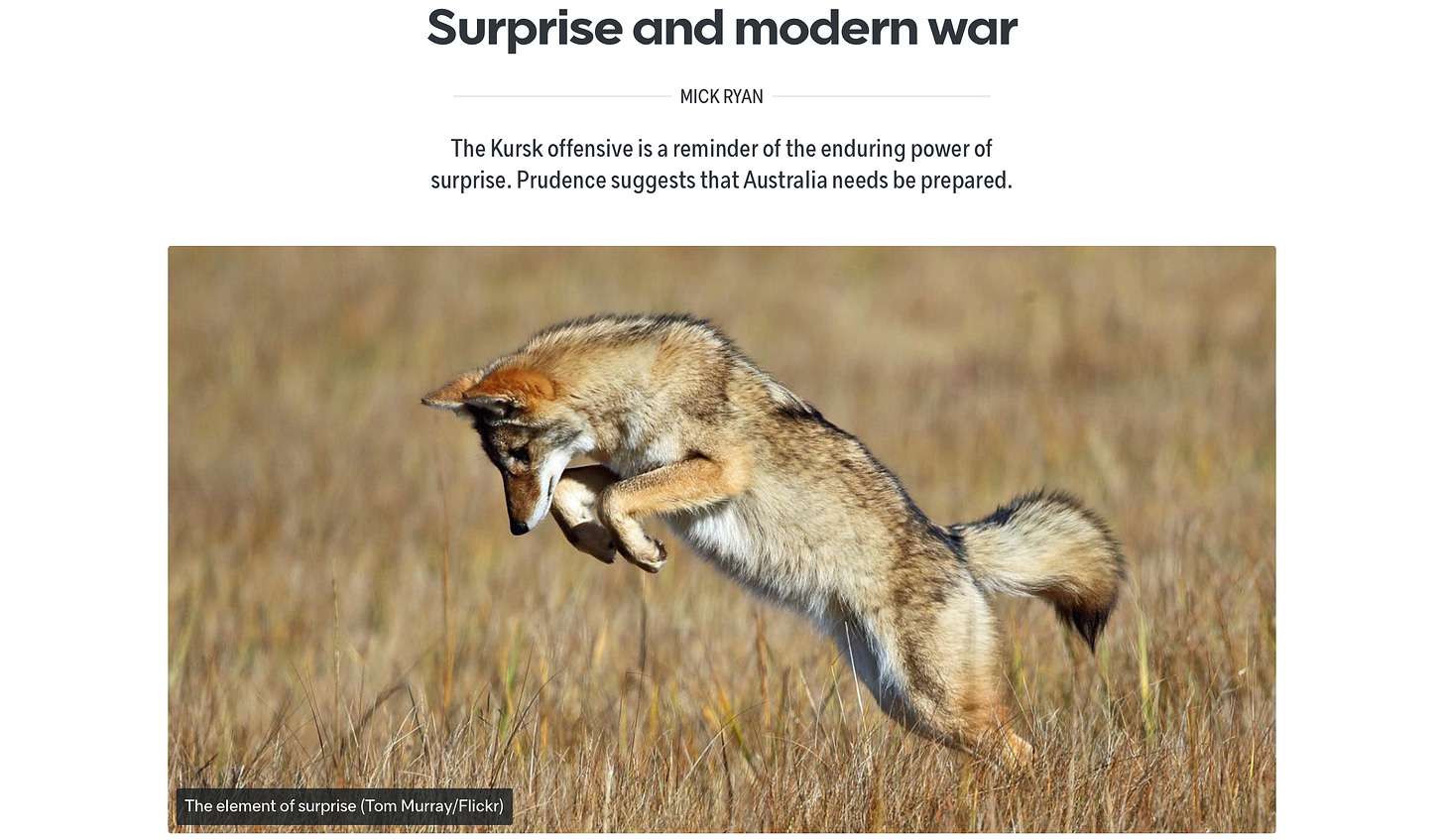Surprise and modern war
The Kursk offensive is a reminder of the enduring power of surprise. Prudence suggests that Australia needs be prepared.
My latest article, as Senior Fellow for Military Studies, for the Sydney-based Lowy Institute is now available.
Prussian military officer and theorist Carl von Clausewitz once wrote, “surprise lies at the foundation of all undertakings without exception, only in very different degrees according to the nature of the undertaking and other circumstances.” Through their incursion into Russia’s Kursk region over the last fortnight, Ukraine’s armed forces have shown that surprise still has a major role to play in war.
The term “transparent battlefield” has been used a lot in describing the war in Ukraine. It is an unfortunate term because it is inaccurate. We may be able to see much more, but visibility is not the same as understanding or wisdom. No satellite, spy plane or drone can see into the minds of commanders or the hearts of combatants to assess their morale.
Afghanistan was one of the most closely watched battlefields in human history, yet American and allied forces were still frequently surprised during the two-decade campaign there. The same has occurred in Ukraine. Regardless of the advanced technologies that inform and speed up decision-making in military affairs, surprise remains one of the enduring elements of strategic competition and conflict.
In the past century, surprise has been at the heart of all major wars. Pearl Harbour, the Arab attacks on Israel in 1973, the 9/11 attacks on America and the 7 October 2023 Hamas attacks on southern Israel all achieved surprise. Surprise can occur in peacetime as well, as events such as the Chinese security agreement with the Solomon Islands demonstrate.
If the Australian government, the Australian Defence Force and various national security agencies are to learn from surprise in modern war, they must ask: how did Ukraine achieve its recent surprise against Russia at this point in the war?
You can read the full article, for free, at the Lowy Institute here.


